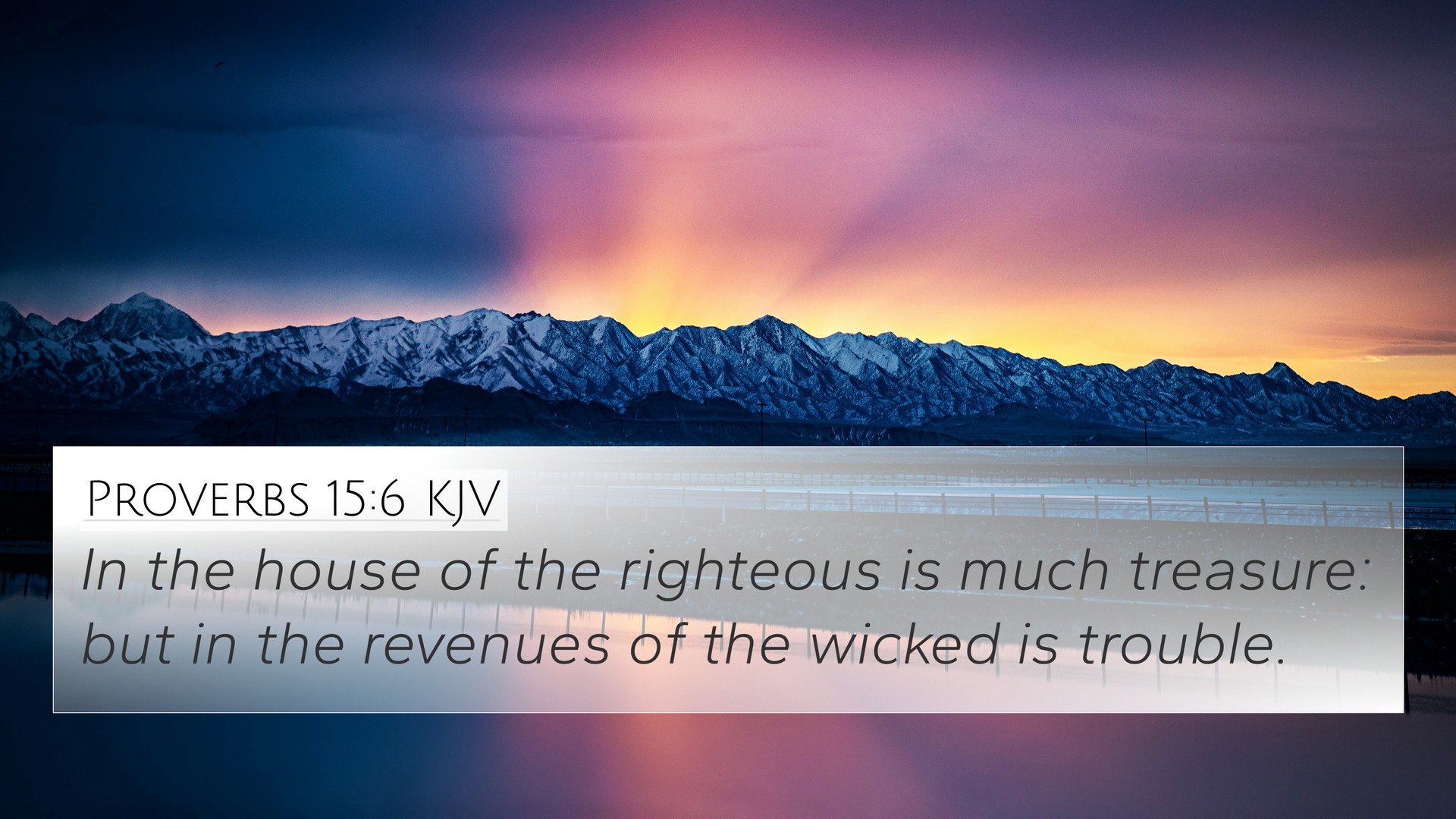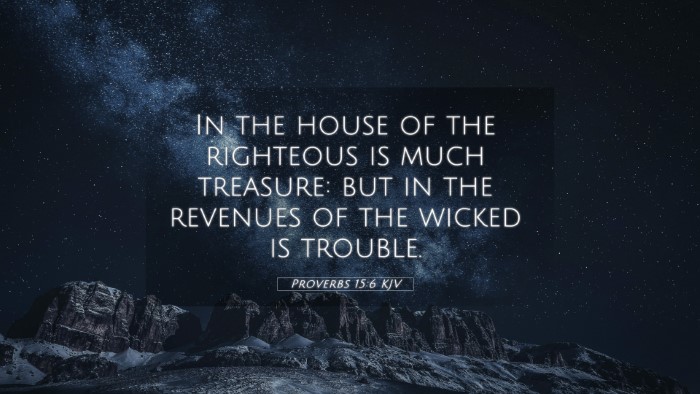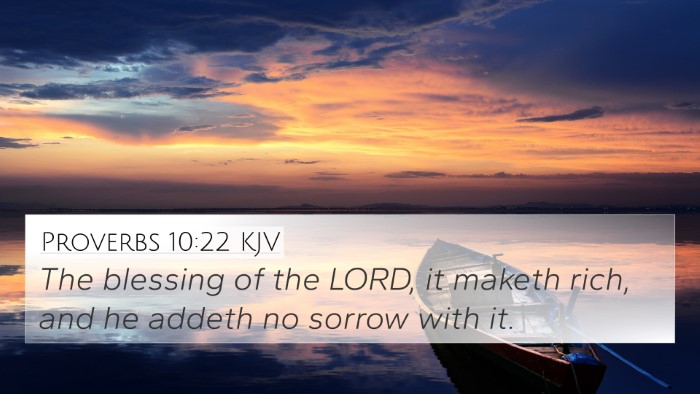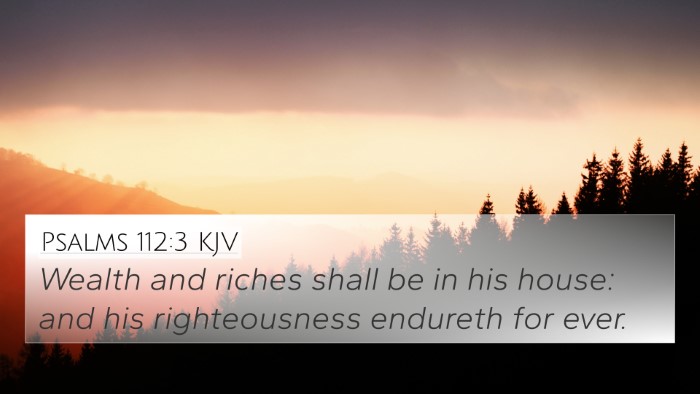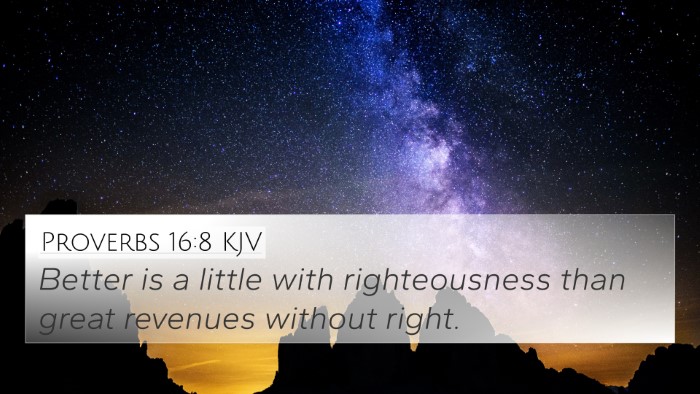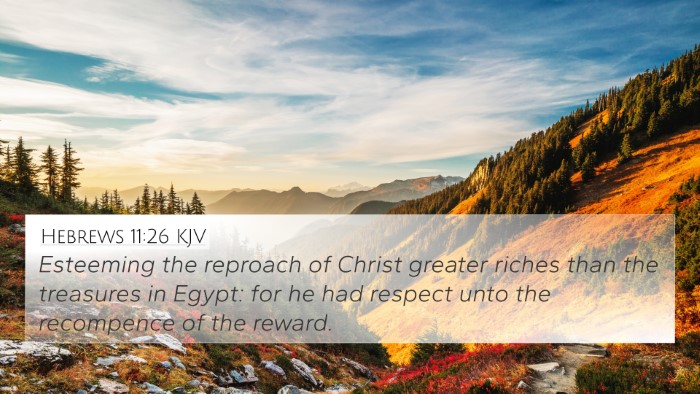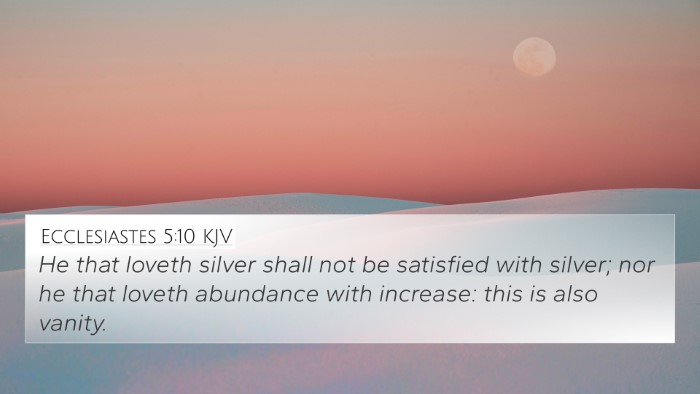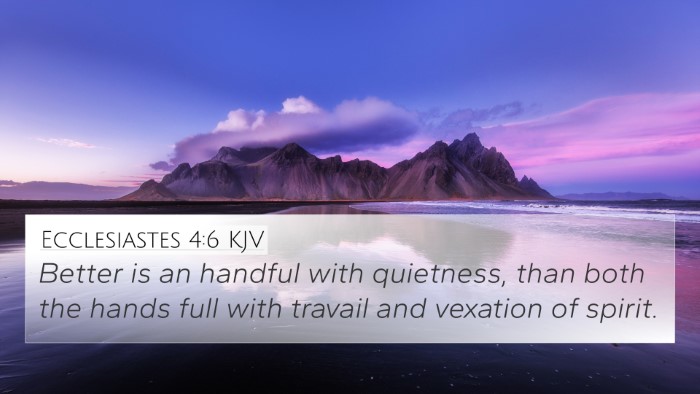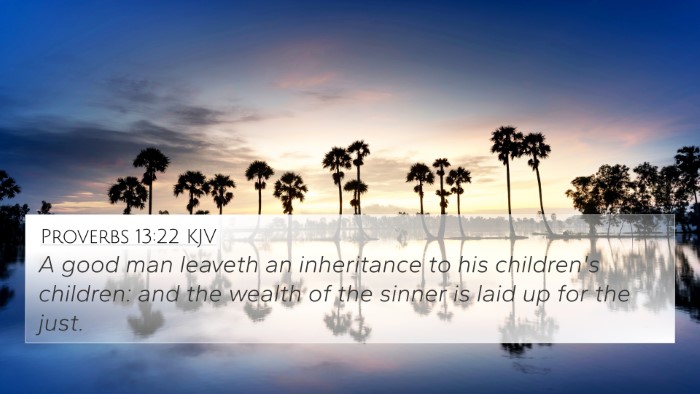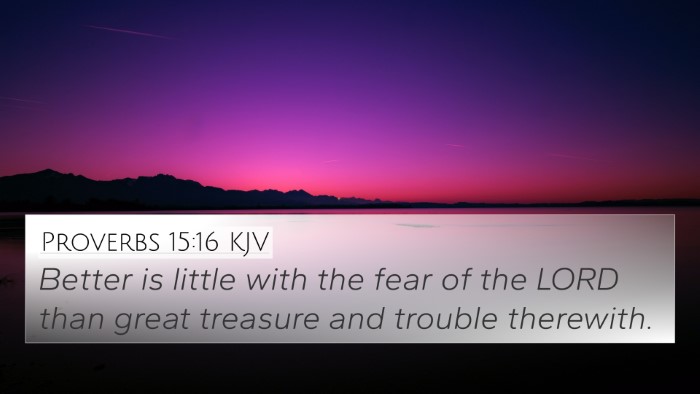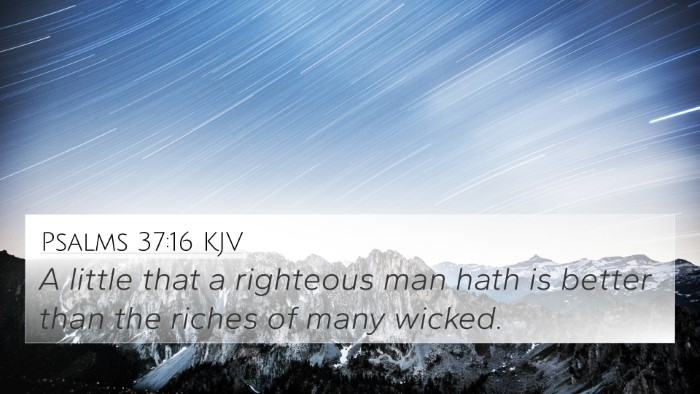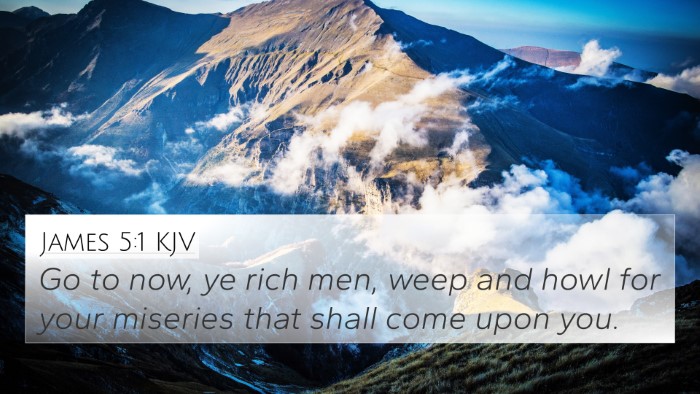Understanding Proverbs 15:6
Bible Verse: Proverbs 15:6 - "In the house of the righteous is much treasure: but in the revenues of the wicked is trouble."
Overview
This verse highlights the stark contrast between the households of the righteous and the wicked, emphasizing the abundant blessings that righteousness brings compared to the troubles associated with wickedness.
Commentary Insights
- Matthew Henry: Henry observes that the homes of the righteous are filled with peace, joy, and material blessings, signifying that true wealth is not solely financial. He emphasizes that the inner riches of virtue and divine favor far outweigh earthly possessions. The verse also implies that the gains of the wicked may seem substantial, but ultimately lead to turmoil and despair.
- Albert Barnes: Barnes notes that this proverb serves as a reminder of the moral order established by God, where righteousness is rewarded. He explains that "treasure" in this context may refer to material wealth, but also to spiritual blessings such as inner peace and strong family relations, which are far more valuable.
- Adam Clarke: Clarke emphasizes the concept of divine providence, which ensures that the righteous possess true security, while the wealth of the wicked is transient and filled with anxieties. He further points out that this verse reflects a common theme in Proverbs about the outcomes of living righteously versus wickedly.
Related Bible Cross-References
- Proverbs 10:22: "The blessing of the Lord, it maketh rich, and he addeth no sorrow with it." - This supports the idea that true wealth comes from God's blessings in righteousness.
- Proverbs 13:21: "Evil pursueth sinners: but to the righteous good shall be repayed." - Again highlighting how the path of the wicked leads to trouble.
- Proverbs 11:6: "The righteousness of the upright shall deliver them: but transgressors shall be taken in their own naughtiness." - Similar wisdom on how righteousness protects individuals.
- Psalm 37:16: "A little that a righteous man hath is better than the riches of many wicked." - Reinforcing the theme of value in righteousness.
- Matthew 6:19-21: "Lay not up for yourselves treasures upon earth... for where your treasure is, there will your heart be also." - Calls attention to the importance of valuing spiritual over earthly treasure.
- Luke 16:19-31: The story of the rich man and Lazarus illustrates the ultimate fate of the wicked compared to the righteous.
- James 5:1-3: A warning to the rich about the impending troubles associated with their ungodly wealth.
Thematic Bible Verse Connections
This verse encapsulates a broader Biblical theme of the juxtaposition between the righteous and the wicked—a theme prevalent in both the Old and the New Testament. This notion serves as a moral framework for understanding wealth and prosperity from divine and ethical perspectives.
Exploring Inter-Biblical Dialogue
To fully appreciate the implications of Proverbs 15:6, one can utilize various tools for Bible cross-referencing, such as Bible concordances and guides that facilitate identifying connections between scriptures. This verse invites us to explore not only its immediate implications but also its resonances within the grand tapestry of scripture.
Conclusion
In summarizing Proverbs 15:6, we recognize a profound truth about righteousness and its associated blessings. By exploring parallel verses and engaging with commentaries, we gain a deeper understanding of how scripture interconnects to convey messages of moral integrity and divine reward. Utilizing resources for cross-referencing can empower readers in their Bible study, allowing them to navigate the intricate dialogue within the scriptures.
SEO Content Considerations
This overview of Proverbs 15:6, fortified by insights from public domain commentaries and connections to other significant Bible verses, equips readers with a comprehensive understanding of this verse’s meaning and implications. Readers interested in biblical themes will find it beneficial to explore the cross-references provided, as they open doors to enriching discussions about righteousness, wealth, and divine favor.
